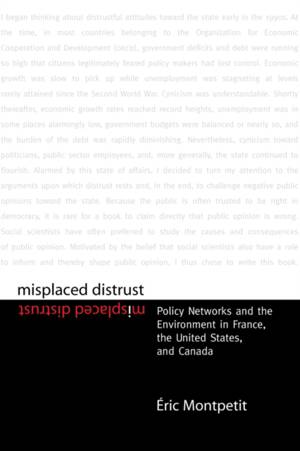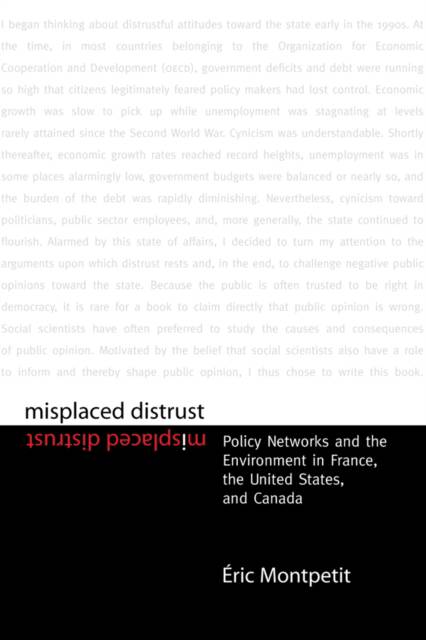
- Afhalen na 1 uur in een winkel met voorraad
- Gratis thuislevering in België vanaf € 30
- Ruim aanbod met 7 miljoen producten
- Afhalen na 1 uur in een winkel met voorraad
- Gratis thuislevering in België vanaf € 30
- Ruim aanbod met 7 miljoen producten
Zoeken
Misplaced Distrust
Policy Networks and the Environment in France, the United States, and Canada
Éric Montpetit
Paperback | Engels
€ 64,45
+ 128 punten
Omschrijving
Citizens of industrialized countries largely share a sense that national and international governance is inadequate, believing not only that public authorities are incapable of making the right policy decisions, but also that the entire network of state and civil society actors responsible for the discussion, negotiation, and implementation of policy choices is untrustworthy. Using agro-environmental policy development in France, the United States, and Canada as case studies, Éric Montpetit sets out to investigate the validity of this distrust through careful attention to the performance of the relevant policy networks. He concludes that distrust in policy networks is, for the most part, misplaced because high levels of performance by policy networks are more common than many political analysts and citizens expect.
Specificaties
Betrokkenen
- Auteur(s):
- Uitgeverij:
Inhoud
- Aantal bladzijden:
- 168
- Taal:
- Engels
Eigenschappen
- Productcode (EAN):
- 9780774809092
- Verschijningsdatum:
- 1/01/2004
- Uitvoering:
- Paperback
- Formaat:
- Trade paperback (VS)
- Afmetingen:
- 152 mm x 226 mm
- Gewicht:
- 158 g

Alleen bij Standaard Boekhandel
+ 128 punten op je klantenkaart van Standaard Boekhandel
Beoordelingen
We publiceren alleen reviews die voldoen aan de voorwaarden voor reviews. Bekijk onze voorwaarden voor reviews.








